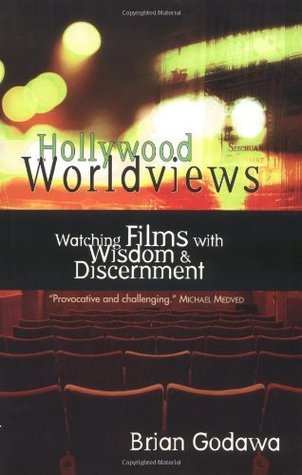What do you think?
Rate this book


204 pages, Paperback
First published June 30, 2002
"In The Truman Show... the storytellers [state] that it is better to be free with uncertainty and danger ahead than to be protected under the control of deity" (50).Godawa categorizes all these movies (and many, many more) under the worldviews of Existentialism, Postmodernism, Fate, Monism, Emergent Evolution, Neopaganism, etc.
"In Amadeus, Salieri's insanity is the result of his rejection of redemption... it is a tragedy, a parable showing us the negative results of a life that defies God" (50).
"In Dead Poet's Society the redemption is asserted, by the schoolteacher Keating, that since we are good for the worms and there is no afterlife, we must 'seize the day' by casting off social and moral restraint to find one's self or potential" (51).
"Dualism is the Star Wars variety of redemption—the dark and light sides of the Force.... This kind of dualism is salvation by good works" (53).
"Tender Mercies... portray[s] Christian redemption in their characters" (55).
"Forrest Gump... communicate[s] the idea of a chance world in which events occur without purpose" (61).
"One film that addresses the freedom-determination debate in a decidedly Christian manner is
Magnolia" (65).
"A good example of a film about freedom over rules is Pleasantville. 'Black-and-white people' discover joy and turn into color when they make personal choices against society's norms. Most of these choices wind up being for premarital and adulterous sex, an expression of freedom through immorality" (69).
"Titanic is a gigantic expression of this rejection of social norms in favor of personal intuition, or the heart-over-head approach" (75).
"In Groundhog Day... it is not until [Bill Murray] decides to personally and selflessly love a woman that he finds redemption... It's [Kierkegaard's] Religious stage, including the same kind of commitment, but without God" (80-1).
"Pulp Fiction is a world without absolutes, without the finer distinction of good guys and bad guys... Pulp Fiction was one of the first self-consciously postmodern mainstream films, heralding a new way of looking at reality in storytelling" (88).
"Castaway... is an example of fate as a God substitute.... As C.S. Lewis eloquently stated, 'It is nice to be able to think of this great mysterious Force [Fate] rolling on through the centuries and carrying you on its crest, [yet] being only a blind force, with no morals and no mind, will never interfere with you like that troublesome God" (108-9).